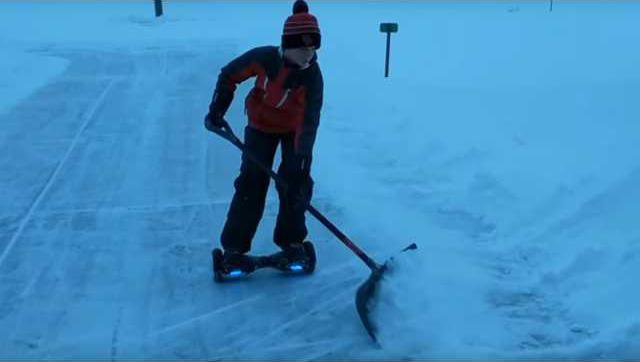SNOW CITY There are a lot of great things about snow sledding, building snowmen, skiing, snowboarding, having snowball fights. Shoveling snow is not one of them.
I didn't shovel snow very often growing up in sunny southern California (OK, I never shoveled snow). When I moved to Utah, I was excited about the cold winters, but dreaded the thought of shoveling the driveway and sidewalk before heading off to have fun.
That's why I love this video. The guy in the video has it all figured out. Not only did he find a much quicker way to shovel his driveway, he found a way to make it fun by riding a hoverboard while he shovels. It's the ultimate snow-shoveling success!
I think I'm most impressed with his ability to get his driveway cleared without ever falling. That requires a level of balance I can't claim to have.
I'm not condoning you try this at home. After all, remember just a few months ago when we were all worried about hoverboards exploding? All I'm saying is this seems like a pretty genius hack to me, and maybe if the hoverboard explodes, the wet snow will douse the flames.
I didn't shovel snow very often growing up in sunny southern California (OK, I never shoveled snow). When I moved to Utah, I was excited about the cold winters, but dreaded the thought of shoveling the driveway and sidewalk before heading off to have fun.
That's why I love this video. The guy in the video has it all figured out. Not only did he find a much quicker way to shovel his driveway, he found a way to make it fun by riding a hoverboard while he shovels. It's the ultimate snow-shoveling success!
I think I'm most impressed with his ability to get his driveway cleared without ever falling. That requires a level of balance I can't claim to have.
I'm not condoning you try this at home. After all, remember just a few months ago when we were all worried about hoverboards exploding? All I'm saying is this seems like a pretty genius hack to me, and maybe if the hoverboard explodes, the wet snow will douse the flames.








